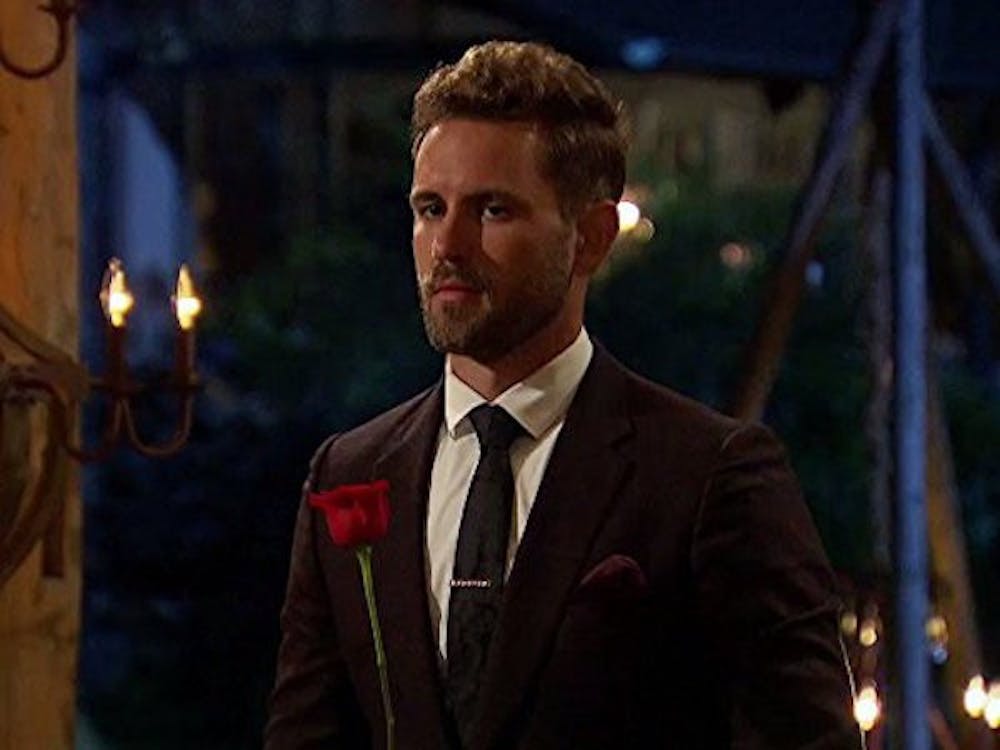Monday nights are dedicated to ABC's "The Bachelor" for many ASU students. Some view the show as a sports-like community experience while others believe the show could have a negative effect on its audience because of the romantic myths it perpetuates.
The Phenomenon
"The Bachelor," currently in its 21st season, and its offshoots "The Bachelorette" and "Bachelor in Paradise" are popular with college students and young adults as a whole.
The premise of reality show dating appeals to the more than 60 percent of college students with dating on their minds, according to the American Psychology Association.
In 2016, "The Bachelor" was the No. 1 reality program among adults ages 18 to 49 in homes with over $100,000 annual income.
In the Classroom
The show’s ratings, longevity and fan community show it has made an impact on society and the media, said Amber Hutchins, Ph.D.
Hutchins teaches a course for journalism and communication students called “Sex, Love and Romance in the Mass Media." The class focuses on romantic myths and stereotypes perpetuated in the media.
As a professor, Hutchins said, she was interested in the show’s premise from its premiere.
“One of the seasons I watched … was sort of a botched season at the end where the woman that he chose, they came back for the finale and he actually chose another contestant that didn’t work out at the beginning,” Hutchins said. “I thought that was fascinating because it seemed like there was a lot of pressure for him to pick a certain candidate.”
Hutchins said if audiences don’t critically analyze myths in romantic media, like the show, they might develop unrealistic expectations in their own romantic lives.
“When you see again and again characters who fall in love at first sight, characters who believe that a marriage is and should be the ultimate goal for every relationship, those kinds of messages, when you consume a lot of media, (are) probably going to affect you in some way,” she said.
However, when it comes to the community watching the show, Hutchins said she believes most of them understand that it is an artificial situation, comparing it to "Keeping Up with the Kardashians."
“I think the show is really designed to be a fairytale,” Hutchins said. “I think if you enjoy it as you would any other fairy tale, as exactly that rather than as a prescription for how to create your relationship, I don’t think there’s anything wrong with enjoying it.”
The Fan Perspective
Kristen Lucas, a journalism and marketing senior, and Maya Patrose, a journalism senior, are two ASU students who schedule their evenings around the show.
The two host a watch party every week. Their friends Nicole Praga and Tynin Fries, journalism juniors, are usually in attendance.
The girls said they see the show less as a relationship model and more as a bonding opportunity. All of them said they wouldn't go on the show as they are now.
Lucas and Praga compared the get-together to sports, citing ESPN's fantasy league for the series.
“It’s kind of like football is for some people where you really band around your football team and you all get together and watch the game and are yelling at the TV,” Lucas said.
Patrose admits she previously judged her mom and sister for liking a show that "pits women against each other," but believes the “bad television” aspect in part drives the group’s communal watching.
“I think part of it is the shame and judgment, like ‘Oh you watch this trash TV,’” Patrose said. “But if you watch it with other people, it’s like … all of us bonding and catching up. You can kind of spin it that way.”
With the drama and fighting, the show satisfies a need to talk about people, Fries said.
“It’s like a way of gossiping without having to feel guilty about it,” she said
As for the relationships the show models, the girls agree more people go on to the show to "build their brand" rather than find love.
Still, Lucas believes the show could produce true.
"I think it can totally work if the two people are committed to making it work and that involves moving to where the other person lives," Lucas said. "They're both going to do their own thing and build their brand and if they're more focused on that than they are on their own relationship, of course they're going to break up."
Last year's bachelor Ben Higgins and winner Lauren Bushnell, who started their own reality show, are a good example, said Praga.
"They're building their brand together," she said.
The show depicted the couple struggling after meeting in a reality show setting and eventually calling off their wedding to have more time to figure things out.
As for this season's Nick Viall, appearing on the show for the fourth time, viewers will have stay tuned to see if love is in the cards.
Reach the reporter at cmlnarik@asu.edu or follow @carsonmlnarik on Twitter.
Like The State Press on Facebook and follow @statepress on Twitter.




